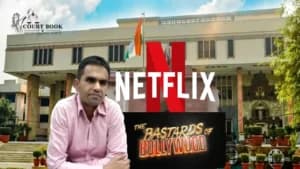The Madras High Court recently rejected a petition challenging the constitutional validity of Section 13 of the Family Courts Act, 1984. This section states that parties in a suit or proceeding before a Family Court do not have an automatic right to legal representation.
The division bench, comprising Justice S.M. Subramaniam and Justice K. Rajasekaran, dismissed the petition, holding that the issue had already been settled by previous judicial pronouncements. The court ruled that no further adjudication was necessary.
Petitioner’s Argument
The petitioner contended that Section 13 of the Family Courts Act violates the right of legal practitioners to practice in courts, as guaranteed under the Advocates Act, 1961. It was argued that this restriction placed an undue burden on litigants, making it difficult for them to defend their cases effectively.
Government’s Stand
Representing the Union of India, Additional Solicitor General ARL Sundaresan opposed the plea, arguing that the matter was no longer open for debate (res integra). The ASG pointed out that similar challenges had already been dismissed by the Bombay High Court, Rajasthan High Court, and Allahabad High Court.
"Judicial discipline requires that the decisions of other High Courts on the same issue be followed to maintain consistency in implementing the law," he stated.
Read Also:- Madras High Court Orders CBCID Probe Against Law Firm Over Alleged Illegal Land Dealings
The government also clarified that there is no absolute prohibition on lawyers appearing in Family Court cases. Section 13, read alongside the Family Courts (Procedure) Rules, 1996, allows representation in deserving cases, with courts retaining the discretion to grant or withdraw such permission.
Judicial Precedents
The court referred to key rulings upholding Section 13:
- Bombay High Court in Lata d/o Baburao Pimple v. Union of India (1993 Mh.L.J. 673): Held that litigants do not have a fundamental right to be represented by a lawyer except under Article 22(1) of the Constitution.
- Rajasthan High Court in Sarala Sharma v. State (AIR 2002 Rajasthan 301): Ruled that Family Courts have discretion to allow legal representation in exceptional cases.
- Allahabad High Court in Bansidhar v. Seema (1992 DMC 353): Affirmed the constitutional validity of Section 13, stating it does not violate Article 22(1).
Thus, in view of the settled principle and that there was no absolute bar on representation by advocates, the court dismissed the plea.
Counsel for the Petitioner: Mr. Mahesh Kumar.S
Counsel for the Respondent: Mr.AR.L.Sundaresan Additional Solicitor General of India assisted by Mr.R.Rajesh Vivekananthan Deputy Solicitor General of India, Mr.G.Ameedius Government Advocate
Case Title: Vijay Vaishnavi Sriram v. Union of India and Others
Case No: W.P.No.33465 of 2024















